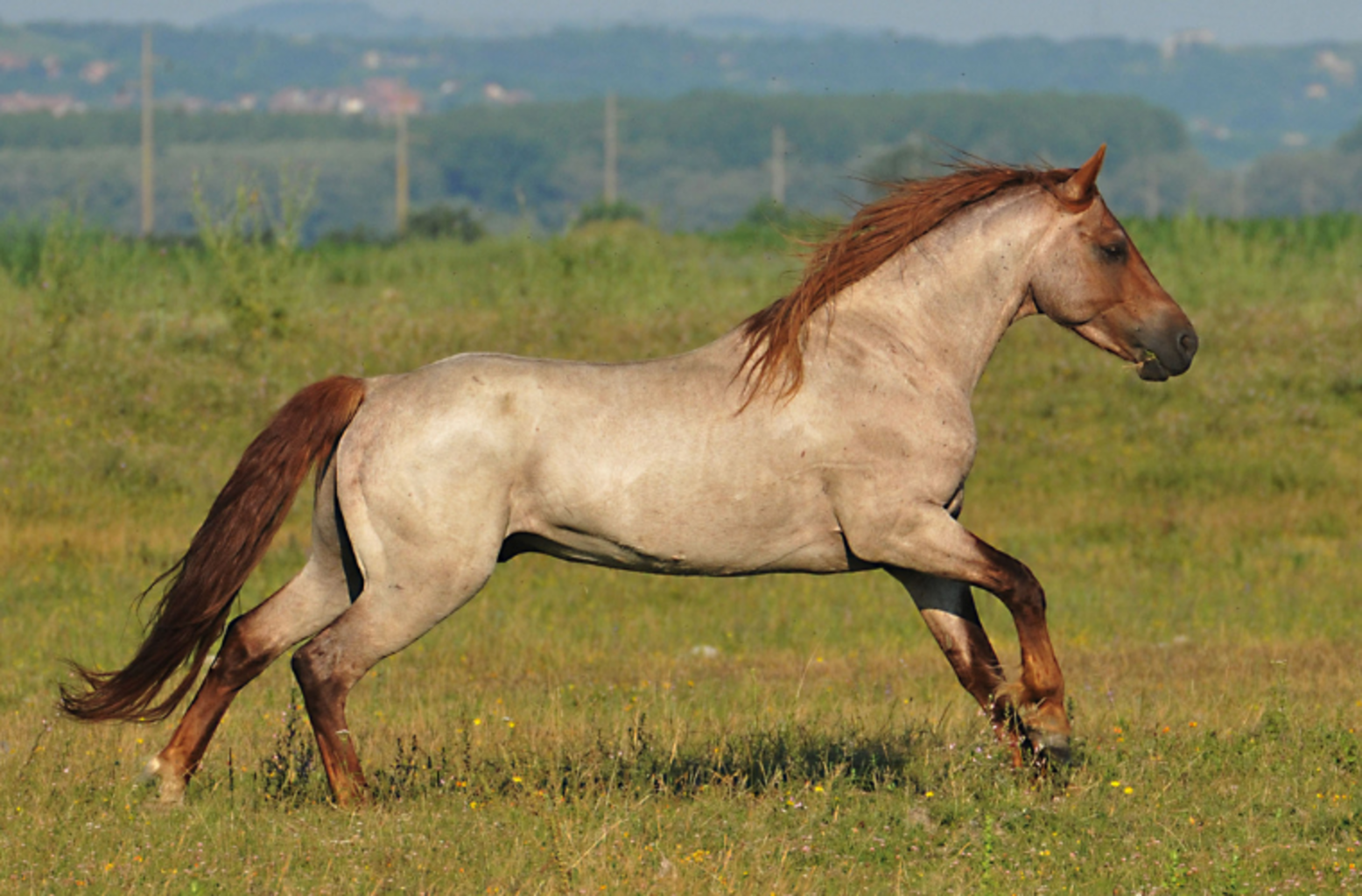Muscle Tension by Crisscrossing - Part 3
By Amelie Kokorsky
A cross crate is muscle tension/stiffness that is often associated with pain and reluctance to move. The causes can be very diverse. In horses suffering from PSSM, it is very often due to too high a quantity of easily available carbohydrates combined with too little exercise. (see Muscle Tension Due to Polysaccharide Storage Myopathy (PSSM) - Part 2)
But (sport) horses can also suffer from a cross crate. In many cases, the cross crate occurs when the otherwise very regularly moving horses have had a break for a few days and are then trained again; or when the animals are exposed to sporting stress that they were previously not used to to this extent (e.g. hunts or endurance rides).
The previous feeding does not play a major role with sport horses. Cross crates occur regardless of feeding. In many cases, it could be observed that the cross crate occurred on cold, wet weather days. However, an exact cause is still being discussed today. There are many conjectures and myths to be found.
The intensity and symptoms of a cross is not always the same. There are milder courses in which the horse shows mild colic symptoms after work. The owner often does not even notice them because the horses are already back in the field or in the stable when the symptoms occur. A stiff movement and a lack of desire to move are also part of a mild course of a cross crest.
In the normal form, the symptoms are more noticeable and much easier to assign to the disease. The following symptoms appear when a normal crossover occurs:
- Back and croup muscles are painful and tight when palpated; sometimes muscle sections are a little swollen
- During or after training, the muscles (of the hind limbs) are stiff
- The horse suddenly stops and assumes the sawhorse posture (fore and hindquarters are set far apart and the back looks "sagging")
- The horse is sweating and the pulse goes up
- Blood and urine values are changed
A cross crate can also be confirmed on the basis of the blood values. But you should always keep the disease PSSM and cryptopyrroluria in the back of your mind and exclude it as a disease, because the blood values are similarly pathologically changed when all three diseases occur.

IMPORTANT: In the event of a crossover, the horses should not be moved any further or forced to walk. In an acute incident, there is a mortal danger to the horse! Instead, it is better to keep the horse warm (for example with sweat rugs or warming pillows) and call a veterinarian as soon as possible.
After the veterinarian's treatment, the horse can be fed Rosehips and Stiefel Meadowsweet as well as Ginkgo and Marjoram. In general, attention should be paid to feeding after the occurrence of a cross crate. Similar to a horse suffering from PSSM, easily available carbohydrates should be reduced as much as possible and daily exercise should be increased in addition to normal training, ideally by placing the horse in a large field or in an open stable. Paddock trails can also be used as a form of recovery.
Sports horses should be given a sufficient supply of calcium, magnesium and manganese. Stiefel Vitamin Liquid provides a good supply of these nutrients.
In order to counteract the deacidification in the horse's body, you can take a course of deacidifying herbs as a small "emergency aid". Fennel, aniseed and beetroot are ideal for this. Even in horses that have already had a crate, these herbs can help prevent a new attack.
In very active and stressed horses, one should try to lower the intrinsic stress level. A good option here is Stiefel MAG 12 or the Stiefel MAG Power Liquid. Both products can help reduce stress reactions and they can have a calming effect on nervous and stressed horses.
In order to help the horse back to a pain-free everyday life as quickly as possible, great importance should be attached to training the back muscles, because these are almost always affected by a cross crate. The horses should learn again as soon as possible, to let go during the training and to be able to use all muscles painlessly in the natural rhythm of the movement sequences.
In summary, one can say that there can be many causes behind muscle tension. The cause should be clarified in any case, as it can negatively affect the life of the horse if ignored or undetected. Potentially serious illnesses can be behind muscle tension, and you should not do without the advice of a specialist. Depending on the diagnosed cause, in most cases you can help the affected horse yourself and support them with various methods and means.
Every rider should therefore pay more attention to their horse and its movements in order to recognise and treat early muscle tension and possible diseases in good time.
Tip: Always pay attention to the aspect of the right saddle and the right bridle in combination with the individually fitting bit for your horses. These aspects can also negatively affect the horse's movement and lead to muscle tension. You certainly don't like walking around in uncomfortable shoes after all!
Latest reviews
-
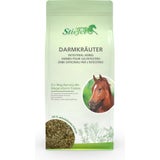 5.0 (12)
5.0 (12)Stiefel Intestinal Herbs, 1 kg
Bestseller- 100% natural herbal mixture
- For digestive problems
- To regulate the gastrointestinal tract
£21.49 (£21.49 / kg)Delivery by May 05
-
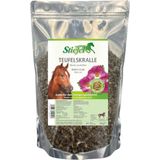 4.8 (9)
4.8 (9)Stiefel Devil´s Claw, Chopped, 1 kg
Bestseller- Good for joints & tendons
- Chopped roots
- Can have a positive effect on the musculoskeletal system
£26.23 (£26.23 / kg)Delivery by May 05
-
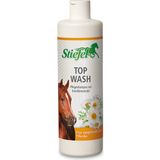 £8.68 (£17.36 / l)
£8.68 (£17.36 / l)Delivery by May 05
-
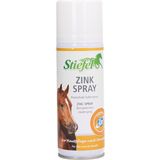 £9.56 (£47.80 / l)
£9.56 (£47.80 / l)Delivery by May 05
-
Great Britain: Free standard delivery from £79.90
-
Free
returns Secure payments
with SSL encryption technology

